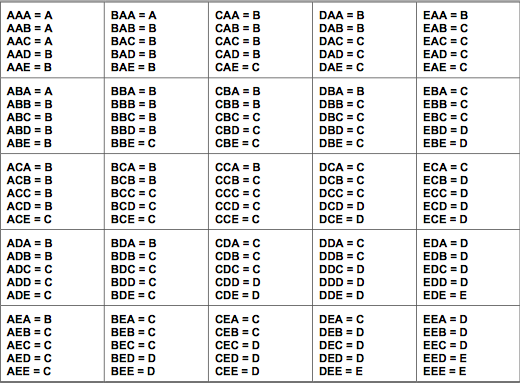Current grading system proves to be a failure

February 25, 2015
It is undeniable that academic motivation, especially at CHS, stems from students’ desire to achieve high grades. However, MCPS’ long-standing semester grading policy inflates lower grades and deflates higher grades due to its lack of specificity. It has significantly decelerated academic progress as hardworking students ultimately receive significantly lower semester grades than they deserve.
MCPS’ current semester grading system assigns a 37.5 percent weight to quarterly grades and a 25 percent weight to exam grades. MCPS’ grading formula depends solely on the letter grades that students earn in each category. It awards a mid-level score reflective of the letter grade earned in each category and then calculates the weighted average to produce a final semester grade.
For example, students who receive A’s both quarters and a C on their exams are arbitrarily given 95 percent for their quarterly grades and a 75 percent for their exam grade. Their final semester score is a 90 percent, the lowest possible A.
By not factoring in raw scores, MCPS’ grading formula invariably gives semester grades that are not reflective of students’ true performances. For instance, a student who earns an 89 percent for both quarters and a 98 percent on the exam would receive a B for the semester. This would be the same grade that a student who earned an 80 percent for both quarters and a 60 percent on the exam would receive. These two students clearly display different proficiency levels but appear to be at the same level on their transcripts because of MCPS’ ambiguity.
According to Principal Joan Benz, a more graduated grading system, one that uses raw scores as opposed to letter grades, would be more fair to students because it would help distinguish students from one another and reward those who excel in their subjects.
If MCPS were to use raw scores and apply the same weight to quarterly and exam grades, the student who earns an 89 percent for both quarters and a 98 percent on the exam would receive a 91 percent for the semester. Under such a revised system, this student would earn an A and be rewarded for his or her hard work.
Therefore, using raw scores serves as an impetus for academic progress because students who have high letter grades can boost their semester grade by performing well on their exams. Currently, students who received B’s for both quarters like this student find themselves not studying for exams because they cannot earn an A for the semester. They can effortlessly score a D, which is the least score needed to retain their B for the semester.
Furthermore, using raw scores instead of letter grades will lead to students taking their exams more seriously. Developing such a mentality towards academics early on is essential to succeed in college.
According to a 2011 December U.S. News and World Reports article, college final exams are the greatest determining factor in students’ grades and need to be approached with discipline and determination.
According to Benz, MCPS’ current grading system has been in place for over a decade, and the process of revising the system is very inclusive of input from focus groups, parents, students, countywide educators and school administration.
Hopefully, MCPS will consider modifying the grading system in an effort to make students more academically motivated and prepared for the academic rigor of college.

